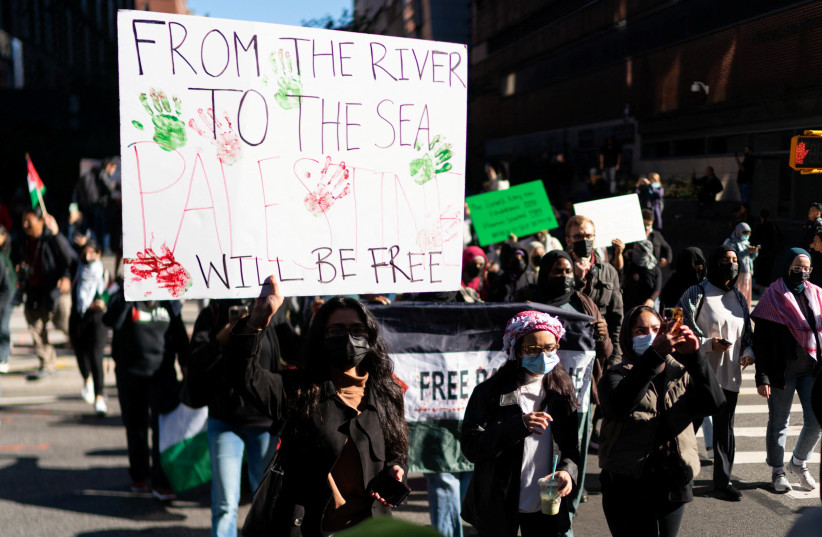Hamas manipulating world with foreign hostages – editorial
In the aftermath of the heinous massacre in southern Israel on October 7, Hamas has made concerted efforts to manipulate global perceptions and distort the narrative surrounding the ongoing situation.
Hamas has committed atrocities against humanity that are now glaringly evident. Israel this week unveiled gruesome videos proudly produced by the Hamas terrorists during their barbarous rampage, shedding light on the depths of the group’s depravity.
Yet Hamas’s sphere of influence extends far beyond Gaza. The organization has deep-seated roots in the Muslim Brotherhood, a group with numerous sympathizers both regionally and globally. This network encompasses student activists, clerics, and online influencers. While not all of these voices overtly endorse Hamas, the group adeptly leverages pro-Palestinian causes, often hijacking pro-Palestinian rallies to advance its own agenda.
One of Hamas’s present strategies involves the exploitation of foreign hostages hailing from two dozen countries. These hostages have become bargaining chips, as exemplified by the initial release of two American citizens and two elderly Israeli women earlier this week.
The utilization of foreign hostages serves Hamas in multiple ways. For instance, they can be released individually in exchange for concessions or they can be held as human shields to protect Hamas figures or installations, with any harm they suffer being attributed to Israel. This manipulative tactic was underscored by Hamas’s false claims regarding a misfired Islamic Jihad rocket that exploded outside a Gaza hospital, disseminating misinformation that spread worldwide before being handily refuted.

Hamas attempting to create separation between Israeli, foreign hostages
This situation underscores the perilous predicament we face. Hamas’s significant number of foreign hostages enables the group to continue shaping global opinion and driving a wedge between Israel and its allies by selectively releasing foreigners while withholding Israelis. We have already seen world leaders stress the importance of securing their own nationals’ release.
To many Jews and many Israelis, the notion that Israeli Jews would be treated differently than other hostages carries echoes of dark moments in Jewish history. During the 1976 hijacking of an Air France plane to Entebbe, for example, the hijackers separated the Jewish and non-Jewish hostages, releasing the non-Jews while keeping the Jews in captivity until they were freed by Israeli forces.
It is imperative that all people and nations of conscience unite against this strategy.
Every hostage must be released, particularly children and the elderly, without delay. That must be a precondition for any further concessions or gestures on Israel’s part and on the part of its allies. There simply is no moral or legal justification to hold infants and grandparents hostage.
The world must vehemently condemn Hamas for its crimes against humanity and genocidal actions. This terrorist group has consistently employed antisemitic and Nazi-inspired rhetoric to underpin its policies. Regrettably, some nations, such as Qatar and Turkey, have hosted Hamas, with misguided hopes of moderation.
We are well aware of Hamas’s true nature, rooted in a history of bloody terror attacks and the prolonged holding of Israeli hostages such as Avera Mengistu and Hisham al-Sayed, as well as of the remains of Israeli soldiers Lt. Hadar Goldin and St. Sgt. Oron Shaul. Hamas has consistently displayed wanton and callous disregard for human life and a knack for manipulating world opinion to garner support and maintain its grip on power.
We must actively and resolutely oppose Hamas’s manipulative tactics. This involves closely monitoring shifts in its rhetoric and efforts to alter its image through regional channels in Doha or Ankara. It is essential that Israel and its allies sustain pressure on Hamas in this complex conflict, which also revolves around narratives, media, and global attention. Prioritizing the confrontation of Hamas in the realm of public opinion and addressing its manipulation regarding the hostages is not just a choice, but a moral obligation.
We owe the hostages – of all backgrounds and nationalities – the universal human rights that all people deserve.





Comments are closed.